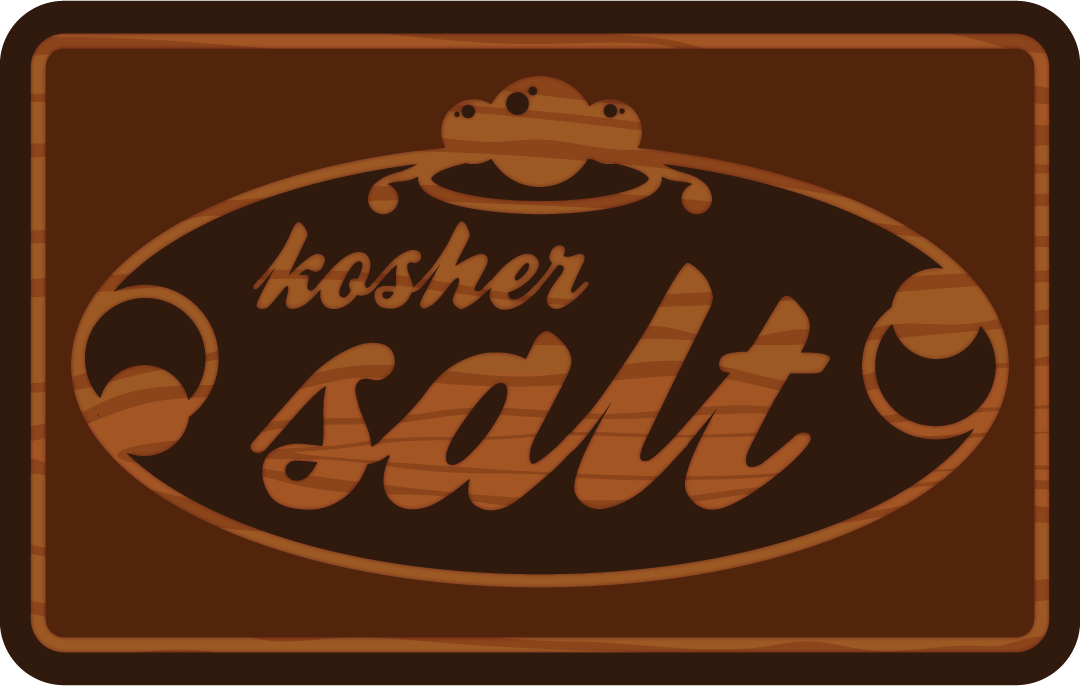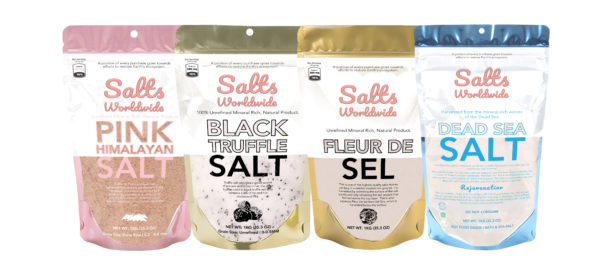As it is chemically similar to kosher salt but so a lot more expensive, you need to use it where its special qualities will be highlighted. In reality, kosher salt isn’t even necessarily certified kosherthough if it’s to be utilised in a kosher meal, it needs to be. It is a type of salt. Kosher salt, although large grained, has plenty of surface area. It’s possible for you to use kosher salt as a stand-in for Maldon but a discerning eater will be in a position to distinguish the difference instantly.
What Everybody Dislikes About What’s the Difference Between Kosher Salt and Regular Salt and Why
When it has to do with pickling salt versus kosher salt, here is what you have to know. Kosher is unrefined and doesn’t contain additives like iodine that are observed in other coarse salts like sea salt. It is a light salt and does not leave a long lasting saltiness in mouth.
The Importance of What’s the Difference Between Kosher Salt and Regular Salt
If you are a person who fears salt, it’s time to modify your mindset. Salt is now an essential part of our lives. Kosher salt is created by evaporation approach. It is a type of salt that is free from any additives at all. It typically does not contain any additives though some companies may add some minerals to make it free flowing. The huge grain kosher salt is an excellent option for occasional cooking.
Surprisingly, it might be because you used the incorrect type of salt. Kosher salt was initially employed for Jewish religious purposes. It may also have a hollow pyramidal shape. It is a great alternative, as long as it is pure salt without any additives. It has a very coarse, flaky texture that is very god at removing blood. When you purchase kosher salt, you know that you’re getting a bigger salt grain that’s flat or pyramidal.
The salt is made up of many smallish grains of salt fused together. Kosher salt is permitted to remain a more coarse-grained salt, which means that the structure beneath a microscope resembles a succession of cubes stacked on top of one another, as opposed to a single grain. It is crucial to be aware that it’s called kosher salt not due to its compliance with the Torah or Jewish Written Law.
Top Choices of What’s the Difference Between Kosher Salt and Regular Salt
If you don’t get enough salt, it can result in difficulties with your body and wellness. As stated by the Mayo Clinic, the most important difference between that fine, table salt and sea salt is the manner where the salt is processed. Unlike some frequent table salt, kosher salt typically includes no additional iodine.
You would like a pinch of salt to be the exact pinch of salt every moment. Kosher salt might also be utilized in recipes that require using coarse salt. Kosher salt, by contrast, has larger, coarser grains that are simple to feel and simple to sprinkle, which makes it much less difficult to gauge the correct degree of seasoning.
Salt affects dough texture, which makes it stronger and not as sticky, since the commenter noticed. Kosher salt differs. It, on the other hand, is iodine-free, and you should use that instead. For every other kind of use you may have, kosher salt is better, only because it enables you to season your food to the precise point you would like it to be at without difficulty.
Typically salt consists of sodium and chloride. It has also become a necessity when it comes to food preservation. Given the simple fact that many of salt is often wasted when rimming a glass, we’re pretty sure the sea salt isn’t the best way to go. As a result, if you decide not to eat regular iodine-enriched table salt, then make sure to’re eating several other foods that have a lot of iodine, like fish, dairy, eggs and seaweed.
Salt is iodized to help stop cretinism in children together with hypothyroidism and goiter in adults. When following a very low sodium diet, all salt ought to be limited. Again, check your water softener’s manual to see whether it’s intended to be utilized with a specific sort of salt. Furthermore, kosher salt works well when wanting to reach a salt rim around the surface of a margarita glass. In addition to being only lightly refined, it also has no additives such as iodine, making it a very pure, plain salt with a mild flavor.
Salt has been part of religion too. Although kosher salt is totally free from additives and added chemicals, it’s also void of the crucial minerals that exist in sea salt. Kosher salt, also referred to as rock salt, is a class salt that’s free of any additives.


